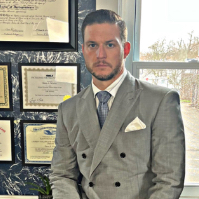Jonesville Felony Lawyer, Michigan
Sponsored Law Firm
-
 x
x

Click For More Info:
-
Law Office of Mark S. Guralnick
55 Madison Avenue 4th Floor Morristown, NJ 07960» view mapCriminal Defense Law Dedicated. Fearless. Successful.
Mark S. Guralnick and his legal team have helped clients throughout the USA and across the world by applying unparalleled dedication and hard work to each case.
800-399-8371
Not enough matches for Jonesville Felony lawyer.
Below are all Jonesville Criminal lawyers.
Andrew Frederick Fink
Municipal, Criminal, Civil Rights, Limited Liability Companies
Status: In Good Standing Licensed: 14 Years
Anne Marie VanderBroek
State & Local Agencies, Government, Criminal, Collection
Status: In Good Standing Licensed: 7 Years
James D. Hayne
Accident & Injury, Criminal, Divorce & Family Law, Estate, Lawsuit & Dispute
Status: In Good Standing Licensed: 54 Years
John M. Macdonald
Estate, Family Law, Criminal, Credit & Debt
Status: In Good Standing Licensed: 44 Years
Leo J. Foley
Lawsuit & Dispute, Family Law, DUI-DWI, Bankruptcy & Debt
Status: In Good Standing Licensed: 43 Years
 Mark Guralnick Morristown, NJ
Mark Guralnick Morristown, NJ AboutLaw Office of Mark S. Guralnick
AboutLaw Office of Mark S. Guralnick Practice AreasExpertise
Practice AreasExpertise

